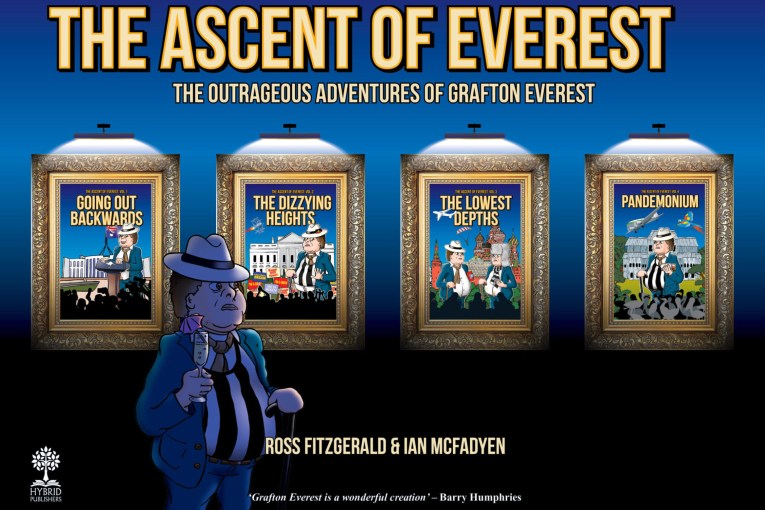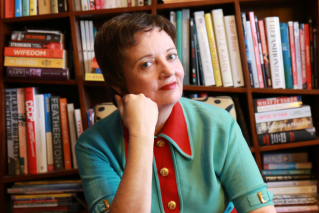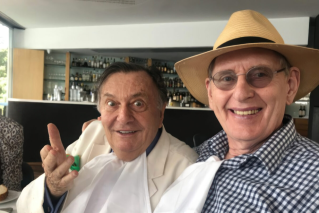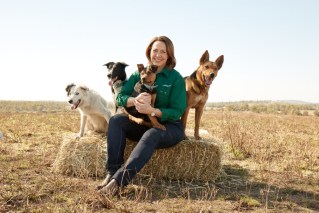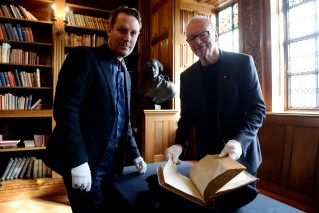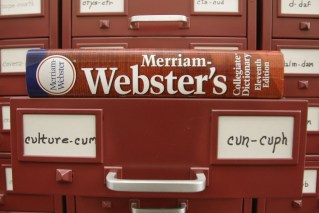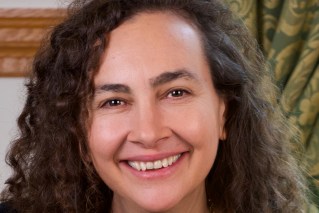Interested in the Oxford Dictionary? Meet the ‘Brissie girl’ who wrote the book on it
Sarah Ogilvie’s passion for words began when she was a student at UQ and now she has published a surprisingly lively book about the creation of the Oxford English Dictionary that has the critics raving.

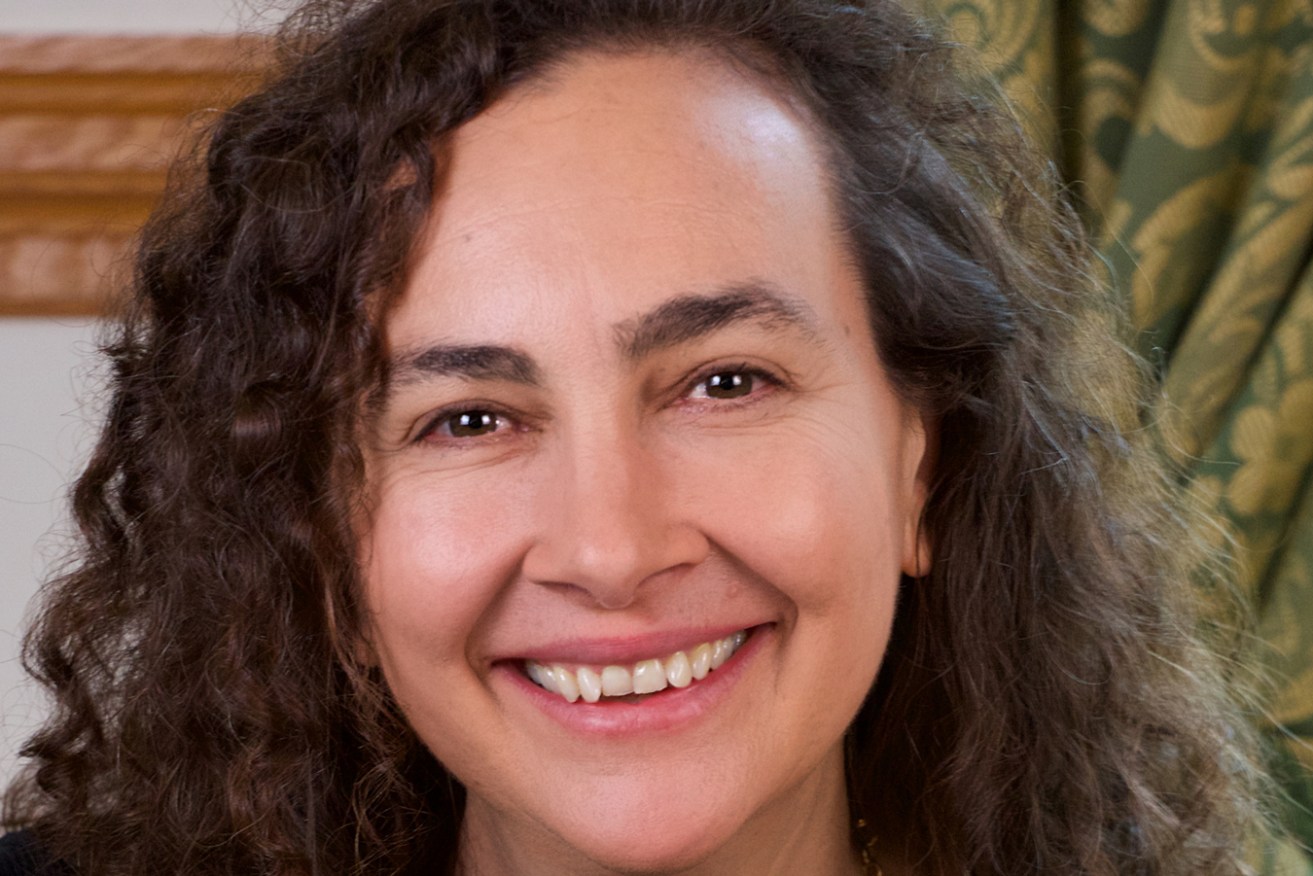
She has the spires of Oxford to inspire her but right now Sarah Ogilvie is dreaming about jacaranda season back home in Brisbane. Ogilvie, a lexicographer who lectures at the University of Oxford, in the UK, is the author of The Dictionary People (Chatto & Windus: $35) the fascinating story of the Oxford English Dictionary (OED) – of the people who edited it and, importantly, the ordinary folk who contributed to its creation.
Her book is now getting rave reviews and Ogilvie, 53, is grateful for that after working on it for eight years. When we chat, it is morning in Oxford and she is hankering for Brisbane, where she grew up.
“I haven’t been back to Brisbane for ten years,” she says. “And I miss it. I miss the beautiful jacarandas, the sound of the cicadas, friends and family. I love Brissie. I know it is jacaranda season there now and that always meant exam season for me.”
Evidence suggests she did well ib those exams at Stuartholme School and later at the University of Queensland where she studied mathematics and computer science.
Ogilvie is from a well-known Brisbane family. Her father Patrick was a celebrated milliner, brothers Mitchell and Brent are successful businessmen – Mitchell Ogilvie runs his eponymous menswear store in Brisbane’s CBD and Brent is something of a tycoon in Noosa – and sister Dom lives in Sydney and also has a background in fashion. Sarah Ogilvie took the road less travelled.
“I’m a bit different,” she confesses. “I’m a bit of a black sheep, the nerd of the family. I didn’t plan to be a lexicographer; I just fell into it. At school I was into maths and was sporty. I played everything except hockey.
“So, I came to my intellectual life a bit late. I stumbled into my chosen field by reading the book Language by Edward Sapir, a foundational text of linguistics.”
That got her started and now she specializes in language, dictionaries and technology. As a lexicographer she has been an editor at the Oxford English Dictionary and was Chief Editor of Oxford Dictionaries in Australia. As a technologist she has worked in Silicon Valley at Amazon’s innovation lab where she was part of the team that developed the Kindle.
After graduating from UQ she took her doctorate in Linguistics at the University of Oxford and has also taught at Cambridge and at Stanford University in the US.
And though she hasn’t been home for years she will be back in May 2024, too early for jacarandas, but never mind. She will visit family and do a bit of a star turn at the Brisbane Writers Festival. By then the buzz that is building around her book will have spread considerably.
It’s being lauded by critics and readers and although the subject sounds a tad dry at first hearing it is anything but. The descriptions of Oxford in the book’s introduction shows what a beautiful writer Ogilvie is.
She takes us on a little tour first, along paths trodden by the like of C.S. Lewis and “into the silence of the cloisters where they had filmed Harry Potter” and ultimately down into the musty archives, her happy place.
As gorgeous as her prose is she is also a stickler for facts and figures but doesn’t let that get in the way of a good story about the remarkable people who helped create the OED.
Some of that history was known but some wasn’t, namely the people who helped find the words for the OED, which was begun in 1857 with the ten volume first edition published in 1928.
“It was done by crowd sourcing,” Ogilvie says. “It was the Wikipedia of its day. I knew about this and at the back of my mind was always the question – who were all these people?”
They were largely anonymous until Ogilvie hit a rich vein of information one day in 2014 when she happened be browsing in the archives of Oxford University Press. She was thrilled to find a previously overlooked black notebook in which the OED’s founding editor, Scotsman James Murray, had recorded the details of 3000 previously anonymous contributors.
“It was an aha moment,” Ogilvie says. “So, I started researching them because I was interested. These people started jumping out of the archives for me and I thought – I have to share this with as wide an audience as possible. It’s their stories but there is also an overarching narrative. There have been other histories of the dictionary from the top down but this one tells the story from the bottom up.”
Creating the dictionary in the first place was a herculean task for Murray and his team and Ogilvie’s effort was no mean feat either.
“I had to sort and document 3000 people and my aim was to shine a light on them and give them credit,” she says.
Murray began his work in 1879 but died before it was finished. It was his job to map every word in the English language.
This took 70 years and was completed after his death but he was the force behind it and recruited volunteers around the world who read books and newspapers and filled out “slips” with words that might be included. These “slips” were sent in from all over the world and this process has continued into modern times although now it can be done online.
The people involved were interesting as Ogilvie found out and they included Karl Marx’s daughter, various professionals and, in the mix, murderers, vicars, suffragettes, scientists and just plain eccentrics.
One of those, was active until relatively recently. Chris Collier lived in Paddington in Brisbane and was a regular contributor sending in 100,000 “slips” to the OED between 1975 and 2010. He scoured local newspapers for these words pilfering them from rubbish bins on his late-night walks, conducted in the nude. He was, among other things, a naturist.
Ogilvie’s meeting with him in 2006 occurred when she was working for the OED in Canberra, long before the book was on her horizon. Her portrait of him is endearing and he was responsible for quite a bit of Aussie English getting into the OED, words like petrolhead and sickie. Many of Collier’s words didn’t make the cut though, including the local nickname for the Queensland capital, Brizvegas. Some of us are happy about that.
Odd as he was, Collier is one of Sarah Ogilvie’s “dictionary people” and there are many others who make this book as entertaining as it is edifying.
This article is republished from InReview under a Creative Commons licence. Read the original article.
InReview is an open access, non-profit arts and culture journalism project. Readers can support our work with a donation. Subscribe to InReview’s free weekly newsletter here.
